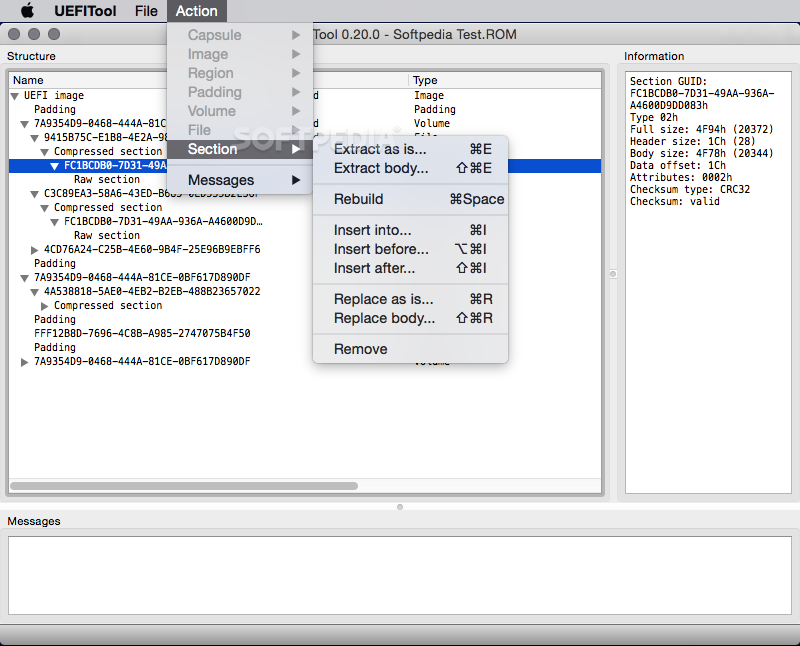
- #Uefitool microcode mac os#
- #Uefitool microcode update#
- #Uefitool microcode pro#
- #Uefitool microcode download#
But it turned out named SD card had some corrupted sectors (I wasn’t aware of this when doing my BIOS flash unfortunately!) I had all my flash files prepared on my MicroSD card. ‘Funny’ thing is it all went wrong with the BIOS Instant Flash feature and with a non-patched BIOS. Of course I have been up- and downgrading my BIOS a lot which always is kind of risky – even more when you are using patched firmwares / BIOS’es.
#Uefitool microcode update#
But that’s not because I abandoned this site, but rather because I fried my mainboard when a BIOS update failed. There haven’t been some updates for quite a while. | Tagged iTunes, OS X, Versions | Leave a comment So I have to start one myself (the SHA1 value is the InstallESD.dmg, which was downloaded from Apple’s AppStore): It appears there is no list available regarding which OSX version comes with which iTunes version out of the box – or I couldn’t find this list. Merken | Tagged chime, firmware, G5, PowerPC, sound, start | Leave a comment Openssl base64 -d -in paste.txt -out snd.raw There seems to be a pastebin of the startup sound raw file here. So far I couldn’t get a decent raw sound import on a more current application & platform.
#Uefitool microcode mac os#
Update: Seems you can convert the raw file on Mac OS 9 and SndSampler 5.4 If someone finds an easy way to play the raw file, just post a comment 🙂 You can use also ocenaudio to preview the sound (in messy quality). To play it you would have to mux it into an AIFF file with correct header and chunk data (FORM, COMM, SSND,…). It is encoded using Apple’s version (IMA 4:1) of the IMA ADPCM compression format. So now you have the extracted raw start-chime of 58,548 bytes file size. So we can just use dd in terminal to extract it:ĭd if=~/Desktop/BootROMFirmware of=~/Desktop/start-chime.raw bs=1 skip=821276 count=58548 The sound chime has a size of 0圎4B4 (58548) bytes and starts at offset 0xC881C (=821276). Well the BootROMFirmware contains the famous startup sound / chime.

As I learned it is (or used to be at least) part of the Macs firmware. This cought my attention and I was interested to find out where this sound is stored (on older Mac’s).

It seems that on its 2016 MacBook Pro’s Apple has deactivated it’s famous startup sound / chime.
#Uefitool microcode pro#
| Tagged chime, firmware, Macbook Pro 2016, sound, UEFItool | 2 Comments

Copy MBP131_0205_B02_LOCKED.fd (for the MacBookPro13,1) somewhere on your machine.Open InstallESD.dmg in Contents -> SharedSupport.Right-click on it and select Show Package Content.
#Uefitool microcode download#


 0 kommentar(er)
0 kommentar(er)
